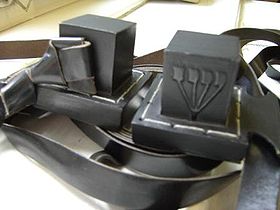Parashat Ki Teitzeh 
“When you will go out to war against your enemies, and Hashem, your G-d will deliver them into your hand…”
The first few verses of this week’s Sedra begin with the seemingly perplexing authorisation to bring a ‘Yefat To’ar’ (woman captive) home from war to marry her. How strange that the Jewish soldier (who was also a totally righteous person) should be allowed to come back with a gentile female over his shoulder. In fact, the idea behind this is that we should refrain from such a deed. Soldiers going out to fight for G-d must realise that He is the ‘Man of War’, and only He gave you the capability to come back victorious. In reality, following your safe return, you should immediately offer a sacrifice in G-d’s honour. And you have the perfect offering – your own evil inclination, which tempted you to look at the female captives of war in the first place. Indeed, it says in Tractate Sanhedrin “Whoever sacrifices his evil inclination and confesses is considered as having honoured G-d in both worlds”.
However, by the very nature of the evil inclination, this is not an easy thing to conquer. That is why the Torah gives us this ‘escape clause’ which is indeed the lesser of the evils. As Rashi says, “The Torah only spoke in consideration of the evil inclination; for if G-d did not permit this woman, the man would marry her even if she is forbidden”. Even so, the Torah continues by saying that the man must take the yefat to’ar to his home (and his wife) whereupon she must replace her attractive clothing and make herself ugly by shaving her head and growing her nails, and spending a month crying for her parents. In most cases, this will be enough to cure the infatuation of even the most ardent soldier.
[We can see the parallel of the ‘soldier’ today, in someone who is attracted to women just for ‘looks’. These days, we are slowly escaping from the trend to marry just for ‘desire’. We are learning that ‘falling in love’ is not a basis for a happy marriage. For when there is only ‘desire’ in the shidduch, we can say that the matchmaker is indeed Mr Evil Inclination himself! In these cases, sadly, the result of divorce, lo aleynu, is much more prevalent ].
We see that during war, even these righteous men (and they must be completely righteous) are apt to steal, commit adultery and other such evils. How can it be that these flawless men can do this? We are told that very often during a war, soldiers are left with nothing to eat. In such a case the Torah permits them to eat forbidden foods. However, eating treif engenders them with bad qualities, therefore the Torah still warns us to keep away from it. This is what eating treif does to us.
And what of one who does follow his evil inclination? Rashi tells us that this man will have a rebellious son. This punishment perfectly fits the crime – just as he rebelled against G-d, so his son will rebel against him. Why does the Torah specify the just the father? Surely the son will rebel against both his parents. This is because it is the father’s particular obligation to teach his son Torah, to rebuke him, and to educate him in proper behaviour. What is the fate of this rebellious son? If he continues in his wayward ways, he is stoned to death. This is a self-evident lesson to all fathers – get to work on your sons now!
The section that follows, appropriately, deals with the laws of the death sentence. Contrary to the non-Jewish custom, it is forbidden by the Torah to hang someone by the neck, let alone by the hands (where the accused struggles with death for days). Rav Zalman Sorotzkin zt”l tells us that the reason we are not allowed to do this is because when a person hangs by his own body weight, he actually ‘kills himself’. We cannot do this for two reasons. Firstly, the execution must be carried out by the witnesses, not the condemned man (see last week’s parsha sheet). Secondly, our Rabbis tell us that the instrument of death must belong to the community. Quite simply, since his body belongs to himself, this would make death by his own body weight not permissible.
Surprisingly enough, though, after the execution the Torah commands us to accord great honour to the deceased, with eulogies, honour and praise. But are we not told to ‘run away from honour’? And since he received the death sentence, is this not false honour?
We can answer this question with a Midrash. When a person dies, G-d tells the angels “So-and-so has died; go and ask if he was righteous”. This seems strange – if all man’s deeds are recorded in Heaven, why does He need to send the angels?
First, we must state that man’s chief purpose is to publicly sanctify G-d’s name. Because of this, so much depends on what is said about that man after his death. If the people eulogising him say that he was righteous, and details his good characteristics, then even if he sinned in private at times (without publicly desecrating G-d’s name), he deserves to be pardoned. Thus if the angels witness the eulogy and report this to Hashem, we see that such eulogies and praises are not false honour, but a means of defending the deceased in the Heavenly Court and helping him have eternal life in the World to Come.
The Torah then lists many commandments, among which is the commandment to put tzitzit “on the four corners of your garment”. Why on the corners? Why not in the centre, or all over? The Torah is indeed trying to teach us a lesson here. We, as Jews, should also be ‘on the corners’, i.e. of material life. We should live a modest existence, partaking in only what we need to be good Jews, as opposed to being ‘all over the garment’, i.e. pursuing wealth and luxurious living. Only then can we be certain of fulfilling all of he Torah’s commandments. This also explains how tzitzit is equivalent to all the mitzvoth combined.
There then follows the laws of punishment for immoral behaviour. Why does this follow the section about tzitzit? To teach us that anyone who fulfils the commandment of tzitzit will be saved straying after immoral behaviour.
One of the most puzzling and misunderstood sections in the Torah is law that an illegitimate child “Shall not enter the congregation of Hashem”. The question is more than often asked ‘if the parents committed adultery, why should the innocent offspring suffer?’
Consider the following scenario: A man and a woman both suffer, G-d forbid, from an incurable disease, and are warned by doctors not to marry, not only for their sake, but for the sake of their children. If, despite these warnings, they do marry and end up having a disabled child, does anyone dare ask why the child must suffer because of his parent’s ignorance? The blame lies squarely on the parents’ lack of foresight. If this is true for a physical illness, it is even more true of a spiritual illness. The Torah warns us not to get involved in extra-marital relationships. It is the parents who have cut off the souls of their illegitimate children from the World to Come and the Jewish people.
However, the positive side to this is that an illegitimate child is obligated to keep the Torah like any other Jew, and we are told that if he is learned he takes precedence over an ignorant High Priest. Also, in the World to Come, illegitimate children will be permitted to marry.
At the end of the Sedra is the commandment by Hashem for us to “wipe out the memory of Amalek”. Why are we told to do this? Can G-d not do this in a single stroke? More than that, in the Sedra Beshalach, Hashem himself says “I will wipe out the memory of Amalek”!
Indeed, the war with Amalek is the war between Satan and those who serve G-d. We are commanded to battle Amalek (as in this weeks’ Sedra), and once we take up the struggle, G-d helps us, and finish them off. The time will come when Hashem will take Satan, the Evil Inclination, the Angel of Death (for they are all one and the same) and slaughter him. On this day, Hashem’s name alone will be exalted.
SHABBAT SHALOM





